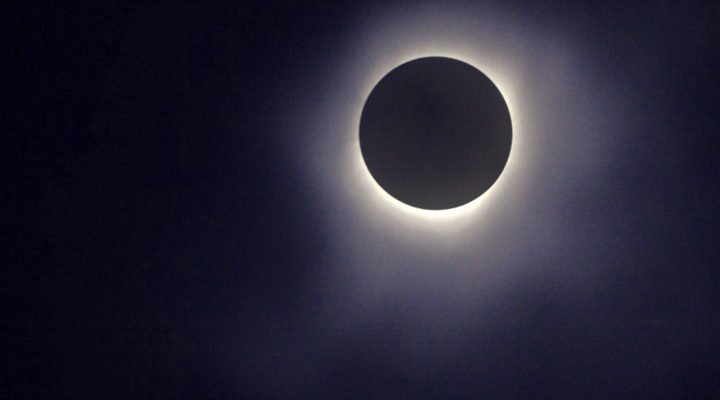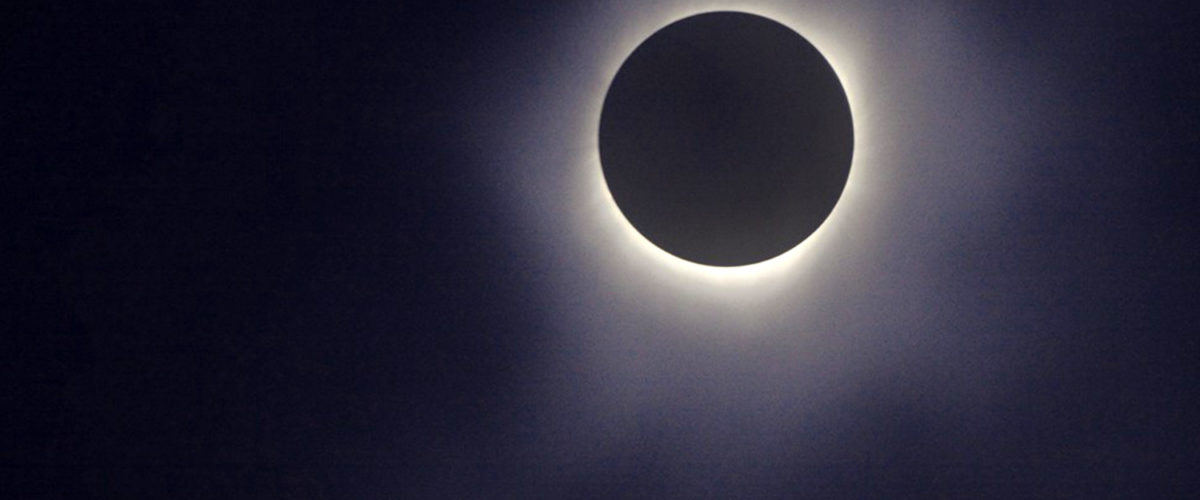 It is rather hard to write with eclipse glasses on this morning, but “I want to be ready,” as the old spiritual intones. Not ever known for culinary process, I even tried to turn Oreos into eclipse cookies. Massive fail!
It is rather hard to write with eclipse glasses on this morning, but “I want to be ready,” as the old spiritual intones. Not ever known for culinary process, I even tried to turn Oreos into eclipse cookies. Massive fail!
Like many others, I have anticipated this day with a sense of foreboding and wonder. The foreboding is a lot less than the wonder, to be sure. The foreboding in my case has to do with religious quacks that claim a natural scientific event is an act of God’s judgment or an apocalyptic event signaling the end of time. That this portent, which happens quite regularly, by the way, has to haul this fake theological freight creates a stumbling block to coherent belief. It is a responsible perspective to hold a worldview that attends to the wisdom of both theology and science.
Another of these celestial alignments will happen in 2024, and I suspect many of the same arguments will be in vogue. It will be an election year, so beware! Some will proclaim that God is judging a “godless nation” by blotting out the sun, and who knows but this might be the very last chance we have to repent. Please understand, I am all for repentance — deep, daily and determined. God’s call always beckons us to turn around to traverse a more life-giving pathway, but I demur at the heated rhetoric of an interventionist theology that only sees God active in the cataclysmic.
God is at work in the regularity of seasons, circadian rhythms and evolutionary trajectories. The old language of calling a brutal storm or other inexplicable event an “act of God” is receding, thankfully.
I do recall when Yorkminster Cathedral was hit by lightning in 1980 and insurance adjustors and religious figures debated whether to call it a divine action. Some concluded that it was because of a liberal bishop; others were less convinced. It is hard to believe that this language persists.
Better to see the whole of creation within providential care, even if it is not a tightly controlled oversight. Terrible and beautiful things occur, often all mixed up together. God is not absent from any of them, and the presence of suffering provokes interrogation of a benevolent deity. Human participation in the unfinished, groaning creation sometimes wreaks more havoc; it is hard to calculate the extent of our influence for good or evil.
Wonder far outstrips foreboding, however. I am thrilled by the fervor with which people have planned ahead to secure the best viewing spots. I delight in the ways this astronomical occasion provides teachers with an expansive scientific lesson. I relish the new learning about animal and crop behavior during a solar eclipse, especially as this is a key concern for those of us who live in the plains. I chortle at the kids who tried out their glasses days in advance, just in case. I revel, also, in the capacity of humans to experience wonder. We were made for this, you know.
It was Rudolf Otto, a scholar of religion in the early 20th century, who wrote about the “idea of the holy,” contending that each one of us has an inherent response to the numinous realities of life. By numinous he meant a divine power at work that invites us to a sense of mystery, fear and, perhaps, worship. At the heart of the religious impulse is the sense of grandeur of God’s creation, the idea that something lies behind the phenomena of earthly processes. A pious Christian, Otto sought to defend belief from naturalistic tendencies, the argument that the whole of this world can be explained without a theistic hypothesis.
It is very instructive for human beings to experience themselves as both infinitesimal and significant, with an appropriate understanding of their place in the scale of our universe. This means we understand that we are latecomers, beneficiaries of a long history that preceded us. We are dependent on all the life forms that have gone before, as well as those that continue to companion humanity today. It also means that the glorious beauty that surrounds us points to a vast intelligence beyond our comprehension. Our recognition of both our frailty and magnificent vocation as God’s image bearers kindles wonder that God is mindful of us, as Psalm 8 states.
I hope our experience of this event illumines a spirit of contemplation as we marvel at God’s handiwork and the perdurance of an expanding universe. I also hope that we find ever more constructive ways to hold both science and faith in our heart. We must read both books — of Scripture and of nature. Holding them together makes for an informed sense of wonder.
Related opinion:
Genius hesitates, both in science and religion | Scott Dickison


